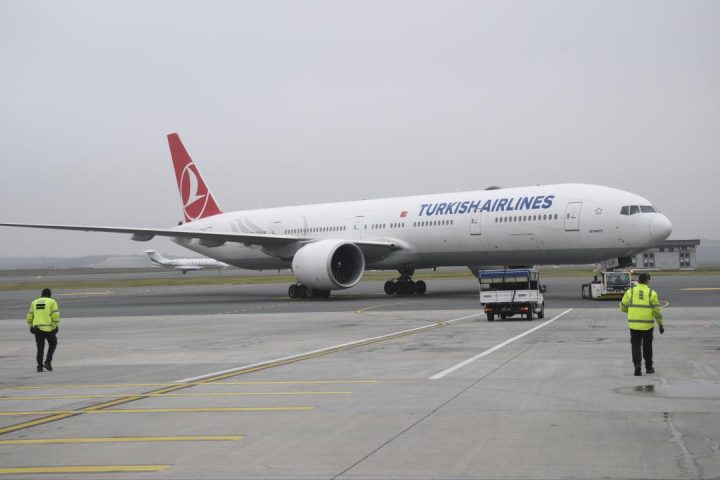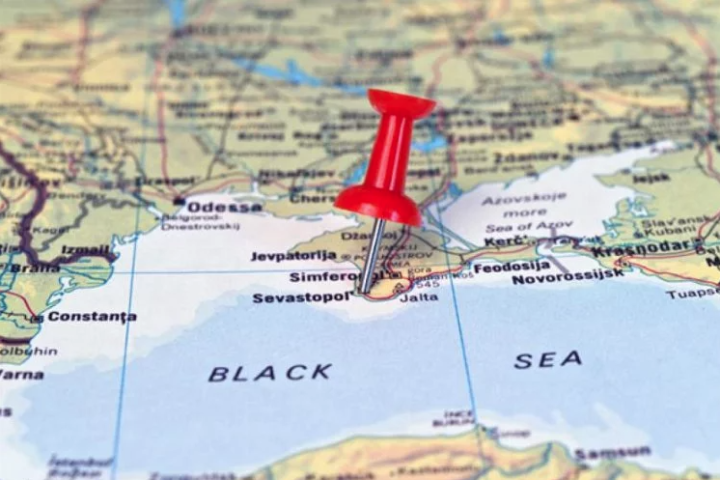Once upon a time, Turkish culture through the eyes of Arab travelers
Arab travelers created the most beautiful travel books of the world, including Ibn Hurdazbih, Yakubi, bnu’l-Fakih, Rifaa Rafi’ Et-Tahtavi, Ibn Batuta, Ibn Bibi and al-Gırnati.
When the Turks conquered Istanbul in 1453, it gained a highly respected position in the entire Islamic world.
Especially for the Arab world, this news created a feeling of sadness as well as happiness; because the biggest dream of every Arab ruler was to conquer Istanbul one day.
For this reason, the city was besieged many times; However, the desired result could not be achieved.
This great victory of the Turks increased the Arabs’ interest in Turkish culture and the country.
Arab travelers from all over the world came to Istanbul and got to know the Turks closely.
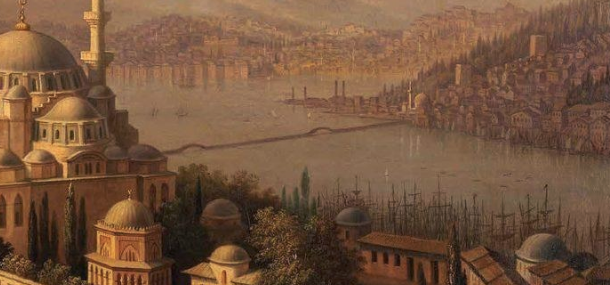
One of these travelers, Bedreddin al-Gazzi from Damascus, would describe the Turks’ homeland of this town and the magnificence of the city as follows;
Istanbul is the biggest city that survived moral collapse by the hand of justice. Whereas the great kings of the past had constantly wooed him and offered him large dowries. He, on the other hand, protected himself as best he could against these kings, until he confronted the deceased martyr Mehmed Han, who was heralded with a message that needed to be explained at length. That’s when he let go of the stubbornness and bowed his neck.
(Ekrem Kamil – Gazzi-Makki Travel Book,
History Seminar Journal)
İstanbul’un fethi Arapların kafasındaki Türk imajını daha ilginç hale getirse de bu ilgi çok daha eskiydi.
Turks through the eyes of Ibn Fadlan
His long name is Ahmed b. Fadlan b. al-Abbas b. Many people first heard of Rashid, i.e. Ibn Fadlan, in the Hollywood production of “Thirteenth Warrior” (The Thirteenth Warrior).
However, contrary to the fiction in the film, Fadlân; He was an envoy to the Turks, not to the Vikings.
Fadlan, an envoy sent by the Abbasid Caliph Mighty Billah to Almış Khan, the ruler of the Volga Turks (Bulgarian Turks), gave quite extraordinary information about the Turkish tribes, which he found primitive and barbaric.
Some explain this forced journey of Fadlan with the forbidden love he had with a princess.
According to the allegations; Known for his stubborn personality, Fadlan is sent to his famous journey, which is unlikely to return because it is known that he will not give up on his love.
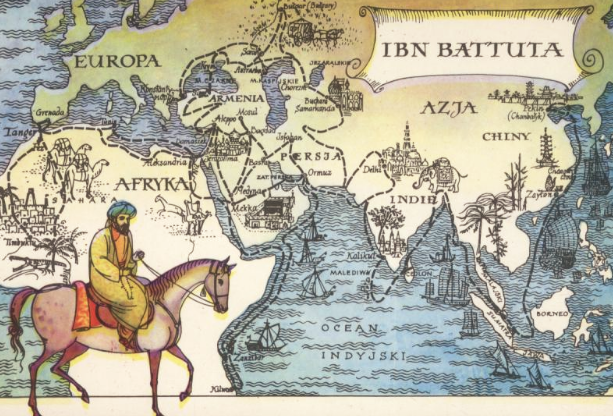
We can understand from his first experience that Fadlan was not very willing to take this journey; but even the intense interest in his work is capable of proving that the allegations are false.
Presumably, the fact that this task was entrusted to Fadlan with political motives can be shown as the source of our traveler’s uneasiness.
Considering the conditions of the period, the stories told about the Idil Turks, whom Fadlan was a guest of, are not very positive. They were seen as extremely savage, devoid of family values, and not at all hospitable tribes.
However, Fadlan; He would soon realize that the people mentioned were Russians, not Turks. For this reason, it is useful to take a closer look at what they say about Turks and Russians.
First of all, he determines the moral status of the Turks as follows;
Men and women go down to the river and bathe naked together. They do not run away from each other. However, they never commit adultery. Whoever commits adultery among them, they drive four stakes and tie them to these stakes by their arms and legs. With the ax they cut him in half from head to foot. They give the same punishment for women. After that, the adulterous man and woman hang each of their parts on a tree. I tried so hard to hide women from men while swimming. But I couldn’t. They kill the thief just like the adulterer.
(Ibn Fadlan Travel Book)
The same Fadlan uses the following expressions, which are not pleasant for the Russians;
Russians are the dirtiest creatures of Allah. They do not wash after big and small toilets, even after they become junub. They do not wash their hands after eating. They are like donkeys that have lost their way.
…
They do not hesitate to mate with their concubines in front of their friends.
(Ibn Fadlan Travel Book)
Another important determination of Fadlan about the Turks; The most determining factor of identity among Turks is not race; is the neck to which they belong.
For example, a member of a Turkish tribe; Fadlan was extremely surprised that he left the Russians behind in barbarism, even a member of a different Turkish tribe, who spoke the same language and wore similar clothes, while exhibiting unparalleled attitudes in terms of hospitality, generosity and morality in the world.
That’s why, while talking about a Turkish tribe with praise, he can talk about another Turkish tribe with satire;
We were all on our guard because we were afraid of the Bashkirs. Because they are the most troublesome, evil and cruel of the Turks. If one of them came across another man, he would kill him, take his head and leave the rest of his body behind. Like other Turks, they cut their beards and ate their lice.
There was one of the Bashkirs with us who later converted to Islam and he was working for us. At one point I caught sight of him, caught the louse on his dress, crushed it with his hand, and then popped it into his mouth. When he saw me looking at him, he said ‘fine’.
(Travel Book of Ibn Fadlan)
Fadlan’s travel book enabled the Turkish image to mature in this way in the memory of the Arabs for many centuries.
Turks through the eyes of Ibn Battuta
Ibn Batuta, who can be called the greatest rival of Marco Polo, the important traveler of the Middle Ages, was born in the city of Tangier in 1304.
Batuta, whose family was from the Levate tribe of Berber descent, traveled throughout the known world except Northern Europe and southern Africa.
Batuta made a significant part of his travels to Turkish towns and spent a considerable time in Turkish Principalities and tribes.
During this journey, he got married many times, served as a judge, caught the plague; but nowhere did it stop permanently. In his own words, he did not use any road he took once.
The reason why Ibn Batuta is so important for the Turks is that he conveyed information about many Turkish principalities and states from Anatolia to the Asian steppes in the 14th century, which is not included in history books.
In the geography stretching from Antalya to Uzbekistan, the Turks met for the first time in the Iranian deserts; The fact that many valuable information, including languages, family structure and even eating cultures, are present in the content of Rıhle carries this work and the traveler to an exceptional place for the Turkish nation.
Batuta’s real Turkish admiration began when he stepped into Antalya. While starting to define Anatolia, “Plenty and abundance are in the land of Damascus, and love and mercy are in Rum (Anatolia)!” Batuta would describe the beauty of his first stop, Alanya, as follows:
While distributing the beauties of the world separately, Allah donated them all together here.
Batuta, who was also a kadi, had a great admiration for the religious understanding of the Turks. He would describe the Turks’ understanding of creed as follows;
The people are from the sect of Imam-i A’zam Abu Hanifah. May Allah be pleased with him. They are all Ahl as-Sunnah. Among them there is neither Qadar, Râfidî [=Râfizi], Mu’tazilî, Khariji, or any other heretic. Almighty Allah has made them superior to other people with these virtues. But they do not hesitate to eat hashish [marijuana]!
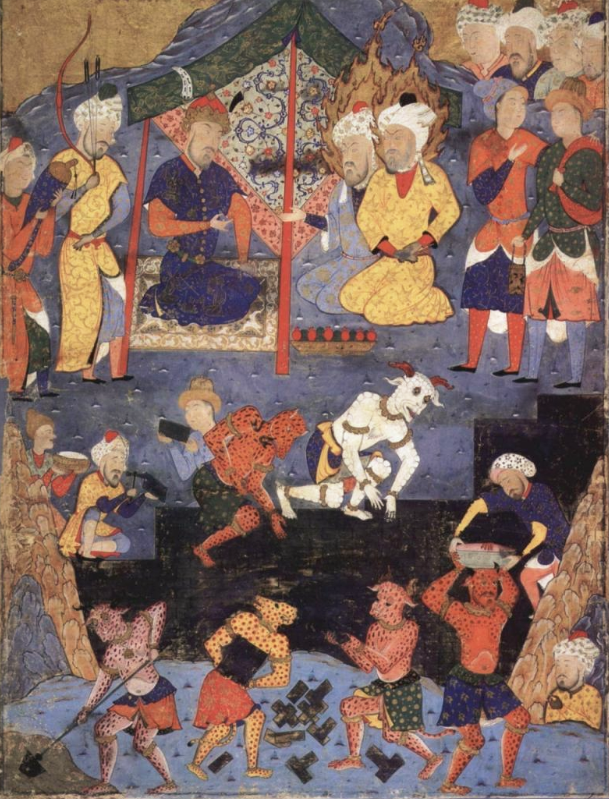
Of course, the Turks are no longer the Turks Fadlan describes. All the Turks whom Batuta saw had converted to Islam and were spreading the religion of Allah in waves in the Greek land.
However, not all Turks could bring Islam to a fully scientific level yet. Batuta narrates an ironic case he encountered as follows;
When the Hodja came to us, he spoke Persian to us, and we spoke Arabic to him, but he did not understand anything from us and turned to his valiant man:
‘Isân Arabî kûhna mikuvân! And he said ‘men Arabî nev mîdanem’.
Let’s get to the description; ‘Isan’ means them. ‘Kûhna’ means old. ‘Mîkuvân’ means they say. ‘Men’ means me, ‘nev’ means new, and ‘mîdanem’ means I know.
Hodja wanted to cover his shame with this word! Although he did not know Arabic, the others thought he knew this language; He said to them:
‘They speak old Arabic, I only know new Arabic!’
Ahı yigit thought that the matter was as the teacher had told him. This job worked for us. Ahi gave us plenty of treats. He was saying:
‘It is a must to serve them, because they speak the old Arabic language. This language is the language of our Holy Prophet and his Companions!’
At that time, we did not understand any of the teacher’s words! But I memorized his word.
When I learned the Persian language, I would understand the issue. We stayed at the lodge that night. A guide was sent to us to reach Yenica.
However, such a generalization cannot be made for all Turks. As a matter of fact, it was the Turks who founded the Kharzemshah State, which left its mark on the world of science.
A special guest from Andalusia had come to visit this town; al-Qaysi al-Gırnati al-Qayravani.
Turks through the eyes of al-Gırnati
Al-Kaysî el-Gırnâtî al-Kayravânî, one of the important Andalusian travelers who visited Gürgenç, the capital of the Khwarazms, makes important observations about the Turks.
al-Gırnati first finds the Turks rude;
The Greeks are known for their yellowness, the Negroes for their blackness, the Turks for their rudeness, the Chinese for their ugliness, the Gog for their Magog shortness, and the Negroes for their imbalance.
(Gırnati Travel Book)
Considering the warlike characteristics of the Turks, this interpretation will not be considered abnormal.
As a matter of fact, al-Gırnati conveys the Turks’ fondness for justice and tolerance in the following dialogue with the Byzantine King;
The Byzantine Emperor asked:
-What is the reason for the Bashkir Khan to come to my lands and fight us?
-Muslim soldiers are next to the Bashkir Khan. Hakan left them free to spread their religion. That’s why they come to your country with armies and fight.
-There are Muslims with me who do not fight against me! You pressure them to become Christians.
I will never force Muslims to become Christians. I will make them a mosque so that they can fight with me.
(Gırnati Travel Book)
Another dialogue between al-Gırnati and the Bashkir ruler proves the good nature of the Turks.
Hearing the advice of al-Gırnati to free the slaves, do not drink alcohol and do not commit adultery, the ruler calls our traveler to him and the following dialogue takes place between them:
This is not a reasonable situation. Because wine makes the body dynamic. Women, on the other hand, weaken one’s prudence and body. So Islam is not a religion of reason.
al-Gırnati tells him through the translator:
Tell the ruler that the method of the Muslims is not like that of the Christians.
Christians drink wine but do not know drunkenness, which increases their strength. But a Muslim who drinks alcohol gets drunk, loses his mind, becomes insane, commits adultery, gets killed, becomes blasphemous, loses all his goodness, gives his horse and weapon to someone else, spends his money for pleasure.
When you order him to fight, he will have neither a gun, nor a horse, nor money. Because the drink ruined it. I think you understand me.
Kill them if you want, beat them, fire them; If you want, give them horses and weapons, they will still be destroyed. Except for those who are in your army and marry for their sex life. As they increase, your soldiers will also increase.
Thereupon, Kezali says:
‘Listen to this scholar. He’s a really smart person. Marry anyone you want and avoid going against him.’
Afterwards, al-Gırnati said, “This ruler opposed what the priests said and considered concubines halal for everyone. That ruler loved Muslims.
(Gırnati Travel Book)
Arab travelers created the most beautiful travel books of the world, including Ibn Hurdazbih, Yakubi, bnu’l-Fakih, Rifaa Rafi’ Et-Tahtavi, Ibn Batuta, Ibn Bibi and al-Gırnati.
Turks have always been the nation they were most curious about in this unique journey.
Arabs always wanted to get to know the Turks closely, both in the pre-Islamic and post-Islamic period of the Turks.
Of course, this was a mutual curiosity in our file ‘Arab Culture through the eyes of Turkish travelers’.
The richness of the observations of Turkish travelers in Arab towns includes details that will open the door to completely different adventures for us.

